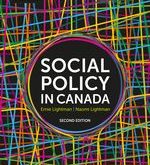The 2017 Economic and Fiscal Update provides some detailed data (see pp. 51-53) on who will be impacted by the government’s plan to limit how much passive investment income can be earned in a private corporation. Income from investments held in a private corporation is taxed at a lower rate than investments held by a person in a non registered account such as an RRSP or TFSA. For most small businesses, there is no incentive to save in a private corporation rather than an RRSP of TFSA....
Read More »Update on Jimbo’s Minimum Wage Wager
It’s been over a week now since I challenged the authors of 5 business-friendly economic reports to a friendly wager over the future trajectory of employment in provinces that are raising their minimum wage to $15 per hour. The challenge was issued in my Globe and Mail column of October 3. I was responding to the several business groups and business-funded think tanks that had issued several reports predicting job losses from the higher minimum wage, in the run-up to the coming vote in the...
Read More »New book on Indigenous homelessness
CCPA recommendations for a better North American trade model October 6, 2017The all-party House of Commons trade committee is consulting Canadians on their priorities for bilateral and trilateral North American trade in light of the current renegotiation of NAFTA. In the CCPA’s submission to this process, Scott Sinclair, Stuart Trew, and Hadrian Mertins-Kirkwood argue for a different kind of trading relationship that is inclusive, transformative, and […] Canadian Centre for Policy...
Read More »Stephen Clarkson: An Introduction to a special blog series
Stephen Clarkson: Political Economist with a Global Vision (1937 – 2016) Marjorie Griffin Cohen and Daniel Drache Stephen Clarkson died early in 2016 in Freiburg, Germany and Canada lost someone very special. Stephen was a Professor in Political Science at the University of Toronto and engaged in teaching, research and writing until his death. He has contributed, in an extraordinary way, to the public understanding of Canada and North America in the 20th and 21st centuries, Europe in the...
Read More »Self-insurance for workers doesn’t work
This is a guest post from Rod Hill, a Professor of Economics at the University of New Brunswick, Saint John campus. A previous version of this post first appeared in the New Brunswick Telegraph Journal. In a report this month for the Halifax-based Atlantic Institute for Market Studies (AIMS), entitled “An Alternative to Employment Insurance”, Justin Hatherly proposes replacing the Employment Insurance (EI) system. A look at the proposal quickly reveals how unsatisfactory it is. Instead of...
Read More »Income and geographic distribution of low-income renters in Toronto
In this second of a series of housing-related posts I analyze the income and geographic distribution of renter-occupied households in the City of Toronto. My first post focussed on affordability and inequality trends by analyzing time series (2001-16) data for Ontario by household income quintiles. As a complement, this blog studies the income and geographic distribution of low-income and other renter households in Toronto based on census-tract (CT) data for 1996 and 2006. I expect to update...
Read More »Some comments on the Financial Accountability Office of Ontario’s minimum wage commentary
The Financial Accountability Office of Ontario (FAO)—an independent, arm’s length, non-partisan research institute—released a paper on September 12th outlining the likely economic impacts flowing from the pending minimum wage increase (see here). The FAO’s findings are already garnering significant media attention and will almost certainly be used by the opponents of Bill 148 as further proof that the Ontario Government is economically reckless. Contrary to the study commissioned by the...
Read More »The headline you didn’t see: $15 per hour will have a big net benefit
You wouldn’t know it from today’s headlines about impending job losses, but an analysis of the impact of Ontario’s move to a $15 minimum wage from the province’s Financial Accountability Office shows a net benefit for Ontario workers. Overall, this is a much more cautious report than what the Ontario Chamber of Commerce and its allies had furnished, noting both the costs and benefits of $15. While the media is focusing on job loss figures (more on this below), the report predicts a big...
Read More »Book review: Social policy in Canada (2nd edition)
Oxford University Press has recently released the second edition of Social Policy in Canada, co-authored by the father-daughter duo of Ernie Lightman and Naomi Lightman. I recommend this book as an excellent resource for students of social policy. It will be useful for classroom instruction, while also being a handy reference for researchers, persons who design and administer social policy, and persons who advocate for improved social policy. Here are 10 things to know: 1. The book does an...
Read More »Housing Affordability and Inequality: Low-Income Renters in Ontario
I dedicate this post to the memory of Bonnie Briggs, who died earlier this month, in honour of her lifelong and tireless work on housing and homeless issues in Toronto. In this first of a series of housing-related posts I analyze rental housing expenditures for low-income households in Ontario. Rent is the single largest expenditure element for renters in the first and second household income quintiles and is therefore an important indicator of housing affordability and expenditure...
Read More » Progressive Economics Forum
Progressive Economics Forum



